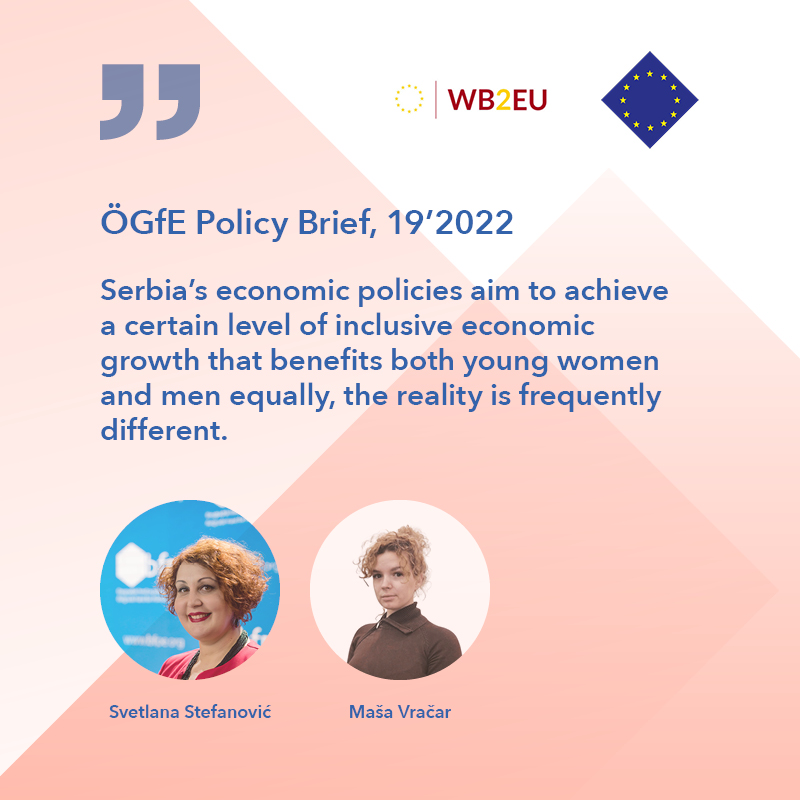The Vulnerability of Women in the Labour Market in Serbia, Svetlana Stefanović & Maša Vračar, ÖGfE Policy Brief, 19’2022
Gender inequality exists today in all societies around the world, and it is rooted in the social structure and the traditional division of labour. It is inextricably tied to economic progress, social cohesion, and the advancement of democracy, demonstrating its significance and value. As a result of law, the absorption of a gender perspective into other policies, and the development of particular measures for women’s development, the European Union has made substantial progress in gender equality during the last decades. As the European Union is a global leader in the promotion of gender equality, particularly in the countries aspiring to join the full-fledged membership status, to Serbia as one of the candidate countries the achieving of the gender equality is high on the priority list. Discrimination of women is present in many spheres, especially in the labour market in Serbia. In the labour market it is reflected in a very disadvantaged position for women, especially young women and those 45+. On one side, their participation in the labour market is low, while on the other side, various forms of discrimination at the workplace, gender roles in family and difficulties in balancing private and professional life have been particularly recognised as reasons for that. This Policy Brief will point out the problems that women face in the labour market, present the main causes of the unemployment of young women and women 45+ and also offer some policy recommendations for overcoming them in the future.
Policy Recommendations
- Including a gender perspective in employment policies.
- Introducing comprehensive programmes and measures to support the employment of vulnerable categories of women as well as empowering women by improving the career guidance system and developing mentoring programmes.
- Improving the system of employment protection and preventing discrimination.

Photo: Tim Mossholder /Pexels


